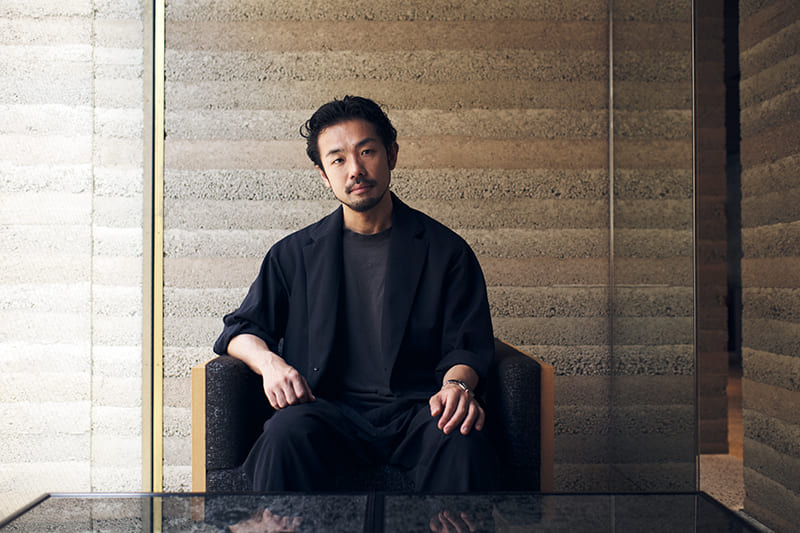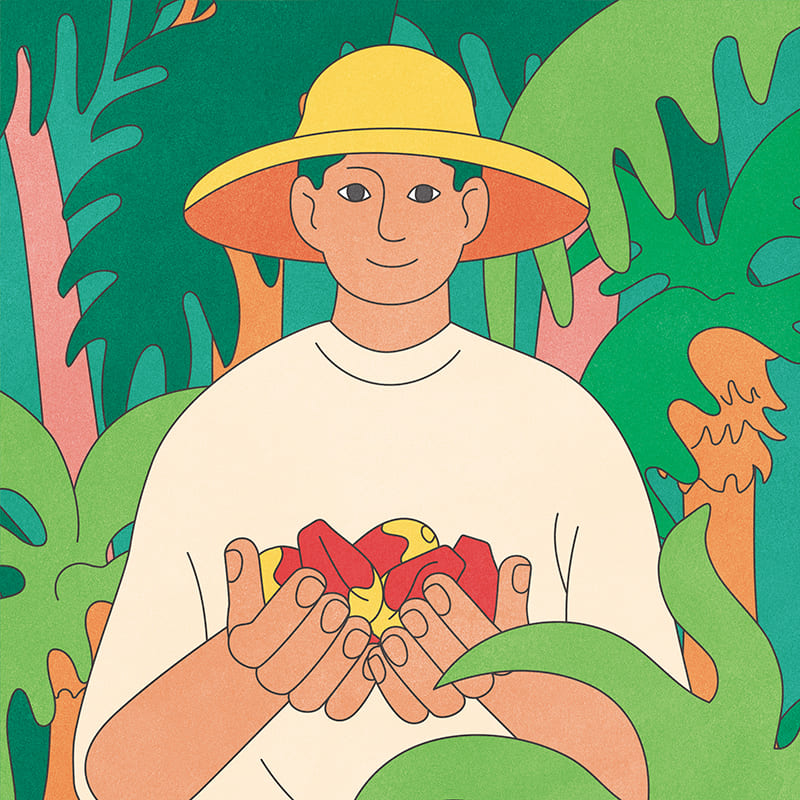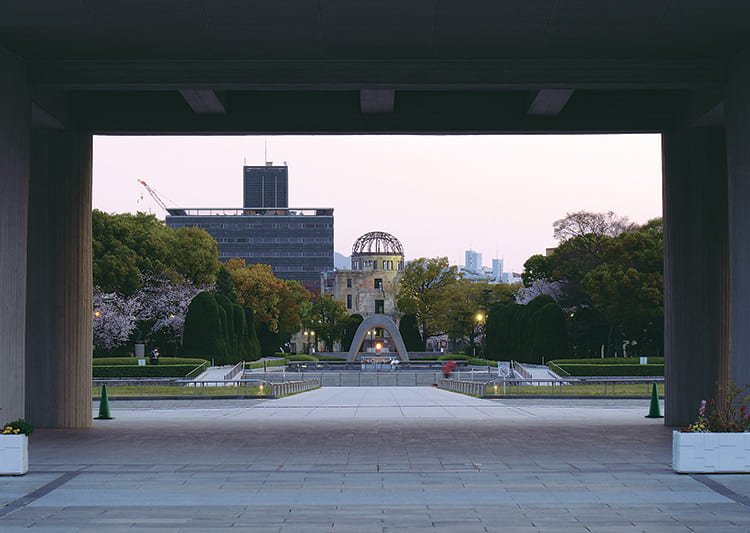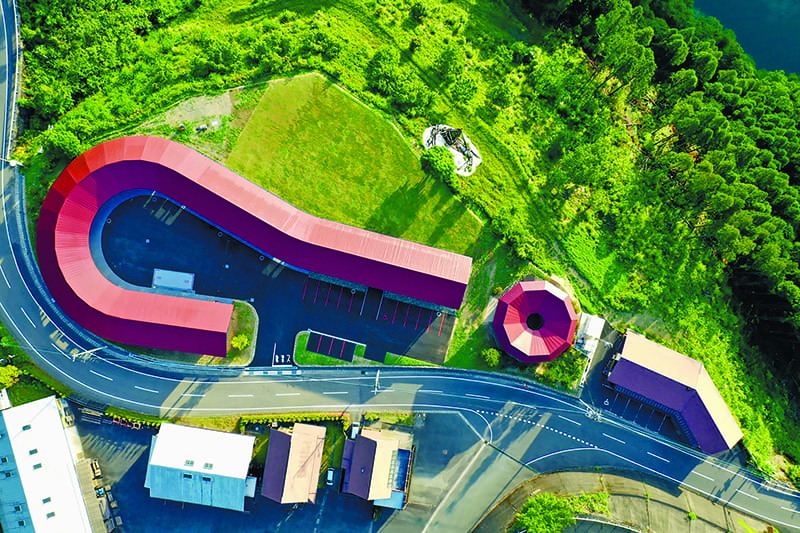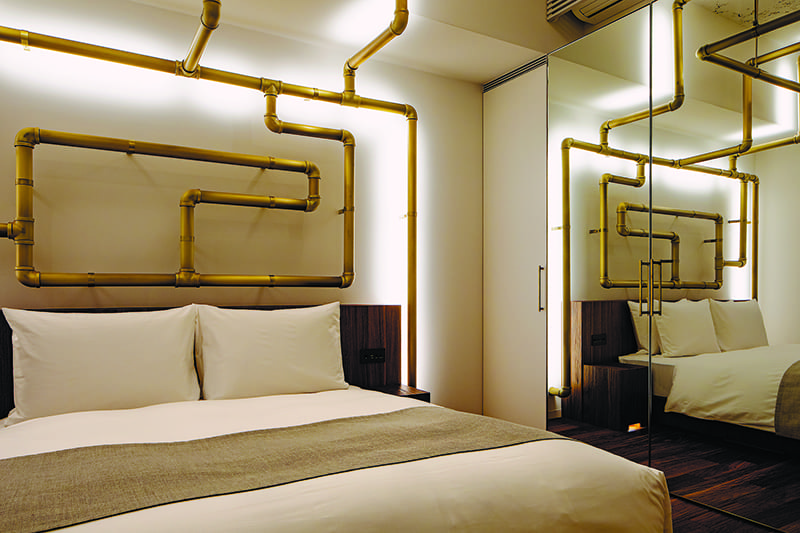December 16, 2021
Designing Kito, Tokushima’s village of the future
KITO
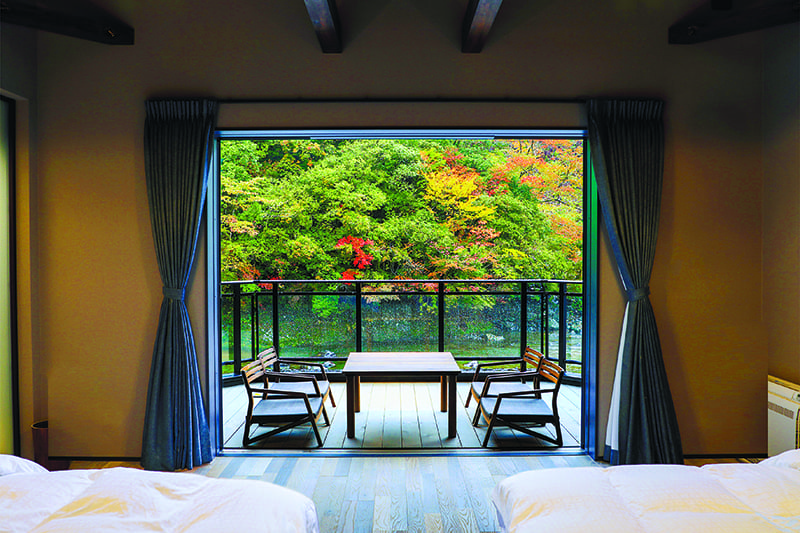
Opened in 2018. Ten guest rooms, including condominiums, cottages, lodges and glamping tents. Accommodation facility set in the great outdoors with a restaurant, a semi-open-air public bath, free Wi-Fi and a conference room that can accommodate up to 100 people.
● 45 Kito Oriu, Nakacho, Naka-gun, Tokushima Tel: 0884-64-8055
COURTESY: KITO DESIGN HOLDINGS
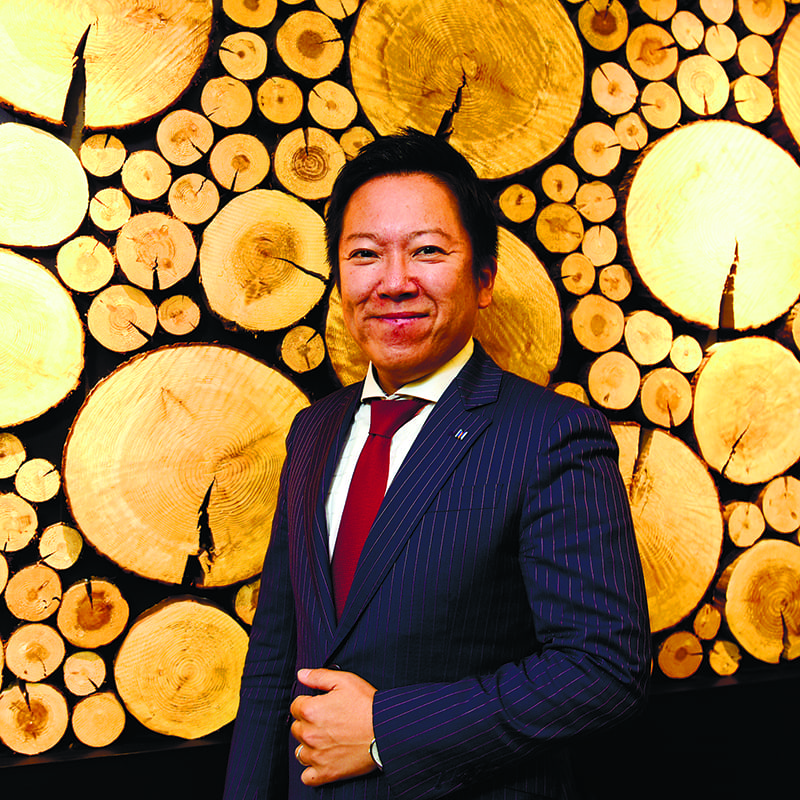
COURTESY:KITO DESIGN HOLDINGS
The village of Kito in Tokushima Prefecture’s Nakacho district is cleaved by the Naka River and surrounded on all sides by mountains over 1,000 meters in height. With more than half of its population of 1,000 age 65 and over, it is a so-called genkai shuraku, or “marginal village.” And yet a convenience store that opened in April 2020 is creating a major splash. Its architecture has received several awards, including the highest accolade of the Red Dot Design Award (Germany), and in Japan’s esteemed Kukan Design Award 2021 for design of spaces, it won the Kukan of the Year grand prize, also topping the shop space category. To date it has won no fewer than 10 domestic and international design awards.
Called the Mirai Convenience Store — “mirai” means “future” — it challenges the conventional approach to convenience store design that has been applied in most of the nation’s 59,000 stores.
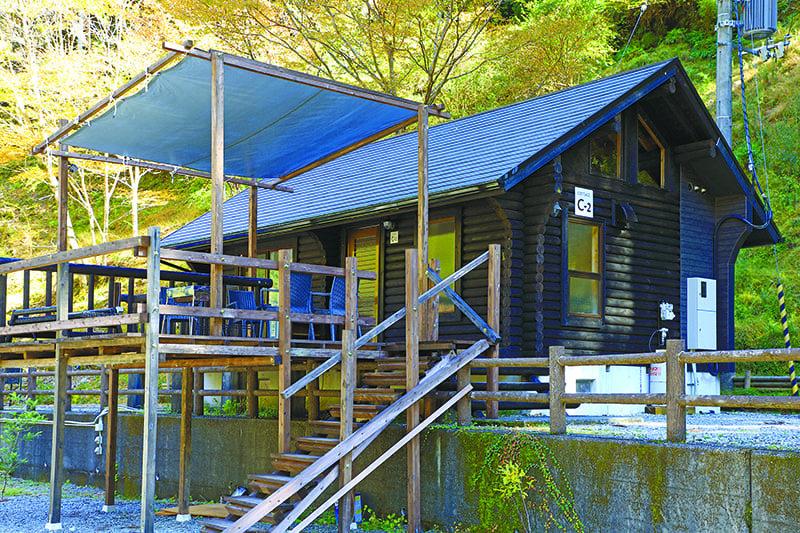
COURTESY:KITO DESIGN HOLDINGS
The person behind Kito’s “most beautiful convenience store in the world” was Yasushi Fujita, a native of the village who is also the CEO of Kito Design Holdings Co. Ltd. Tokyo-based Fujita is also the founder and CEO of Media Do, Japan’s largest e-book distributor. “My hometown never left my heart,” he said, and the new convenience store is just one part of a larger ongoing effort to develop his hometown, which is separate from the Media Do business.
The first part of that effort was to focus on the creation of industry and employment in Kito. In the past, the village was known for its timber and, in particular, Kito cedar, but that gradually declined as competition from imported wood increased and the local population aged. In the face of those twin challenges it was Fujita’s father, and later his uncle, who stood up to try to identify new industries that might revitalize the village. They discovered a native forest of yuzu citrus trees. At the time, yuzu was considered difficult to distribute and the trees took about 18 years to bear fruit. Fujita’s uncle teamed up with a local study group, and after much experimentation, they succeeded in creating a cultivation method that would produce fruit in three to five years. They then set about spreading the name of Kito yuzu to the world. Today, most of the seedlings cultivated in Japan are derived from Kito yuzu. Carrying on the will of his father and uncle, Fujita established Kogane no Mura Co. Ltd. in 2013. In order to promote shipments both domestically and overseas and to strengthen the Kito yuzu brand, he also created the sweets and groceries brand Yuzu no Ki and the original sweets shop Yuzu Cafe Kitchen.
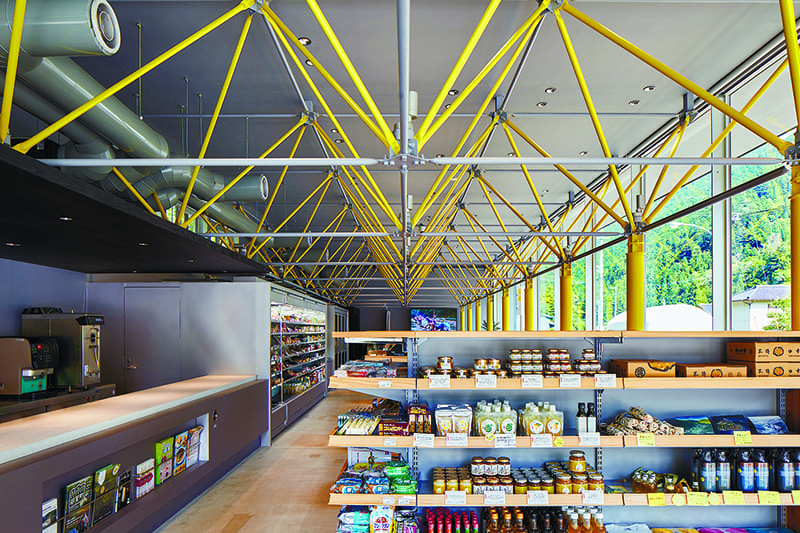
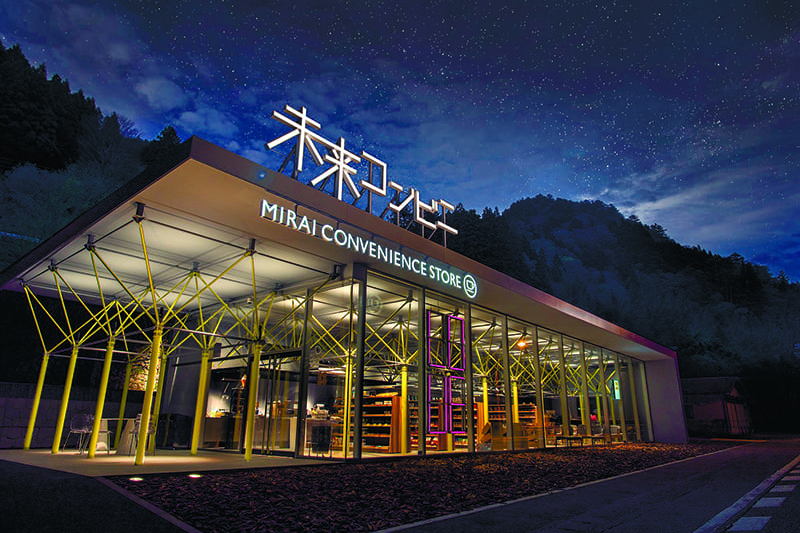
After opening in April, the Mirai Convenience Store has won many domestic and international awards for its architecture.
COURTESY:KITO DESIGN HOLDINGS
Fujita didn’t stop there. There was still something missing in the Kito area: a place for visitors to stay. Fujita felt it was only by staying the night that people could appreciate the village’s charms, and in 2018 he created Camp Park Kito. For this he refurbished an old disused campsite, greatly enhancing its facilities and comfort. Quality is always indispensable for Fujita, and the site can now cater to up to 100 guests with a wide variety of condominiums, cottages, lodges, glamping facilities and more.
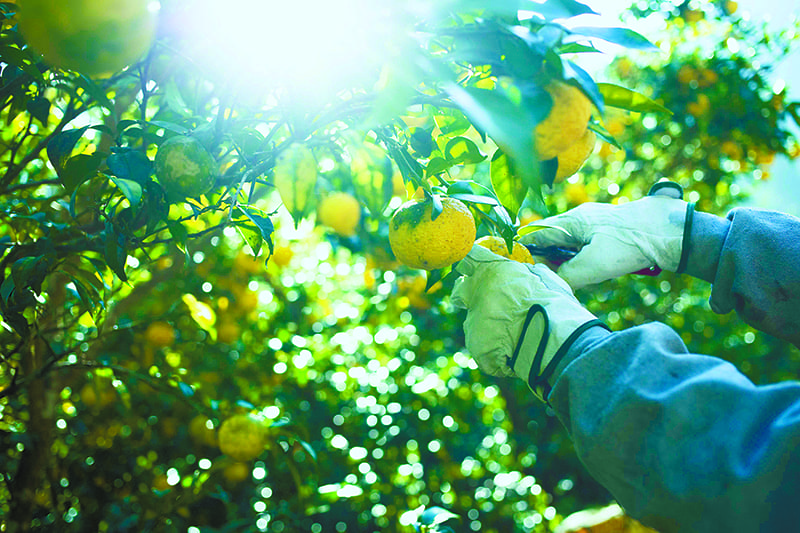
COURTESY:KITO DESIGN HOLDINGS
Since its opening, the cleverly designed campsite has gained a following and now attracts visitors from both within the prefecture and outside. Much more than a place that people might just pass through, it is designed on the concept of hospitality, offering the charm of the village and interactions with the locals. Meanwhile, the Mirai Convenience Store, which was originally intended as a message to the children who will lead the future — and as an essential service for locals who used to have to travel an hour to do their shopping — has also become a must-visit location for the campsite’s guests.
And of course Fujita, who commented that the three things Kito lacks are “food, culture and education,” is not stopping there either. He has already embarked on a new business for next year, taking the project to the next stage. Looking at Fujita’s business development in Kito, such as Camp Park Kito, the Mirai Convenience Store and other new businesses, it is clear his vision is truly comprehensive.
Fujita said he likes to “think not in terms of points, but of planes.” These words hint at how none of the projects he has created have a short-term focus on a single objective. Each generates meaning in and of itself but is also organically connected with others. As a result, the village of Kito and the people who live there are interconnected, and sustainable value is generated over the long term. Those who visit should be conscious that they are not participating in a one-off project, but in a long-term effort to “design a village.” “Creating a ‘miracle village’ where everyone can smile”: This is Fujita’s vision for regional revitalization. For him, the driving force behind these activities is his love for the hometown that forged his own identity. He is evidence that regional Japan may finally be about to change.
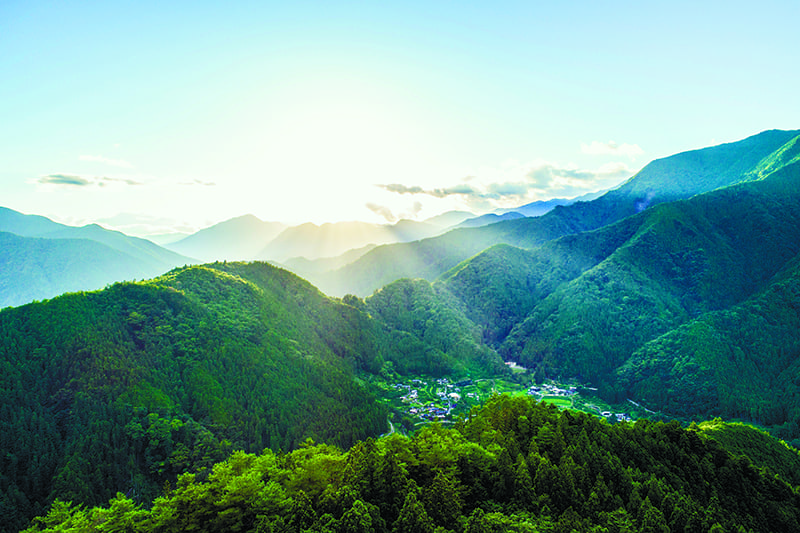
「点ではなく面で考える」包括的ビジョンこそ地域を真に変える。
ここは、標高1,000mを超える山々に囲まれ、中央に那賀川が流れる山間地域、徳島県那賀町木頭地区。この「限界集落」に、今年オープンしたコンビニエンスストア「未来コンビニ」の建築が、国内外のデザインアワード10冠を獲得し話題だ。オーナーは「KITO DESIGN HOLDINGS株式会社」代表取締役、藤田恭嗣。彼は電子書籍取次最大手「メディアドゥ」代表取締役社長CEOとしても知られるが、個別に故郷木頭の創生へ向け産業と雇用の創出に着手。2013年に木頭柚子栽培·加工販売事業「黄金の村」を設立した。さらに2018年には、宿泊場がなかった木頭に、高いデザイン性と快適さを備える「CAMP PARK KITO」を誕生させ、訪問客にその魅力をゆっくり味わえる宿泊場を提供した。
「すべての人が笑顔になれる奇跡の村を創る」をビジョンに掲げる藤田は、木頭の地域創生を「点ではなく面で考える」。この包括的ビジョンこそが地域を変える。活動の原動力は「故郷への愛」だ。日本の地方も、ようやく変わろうとしている。
Return to Sustainable Japan Magazine Vol. 7 article list page

